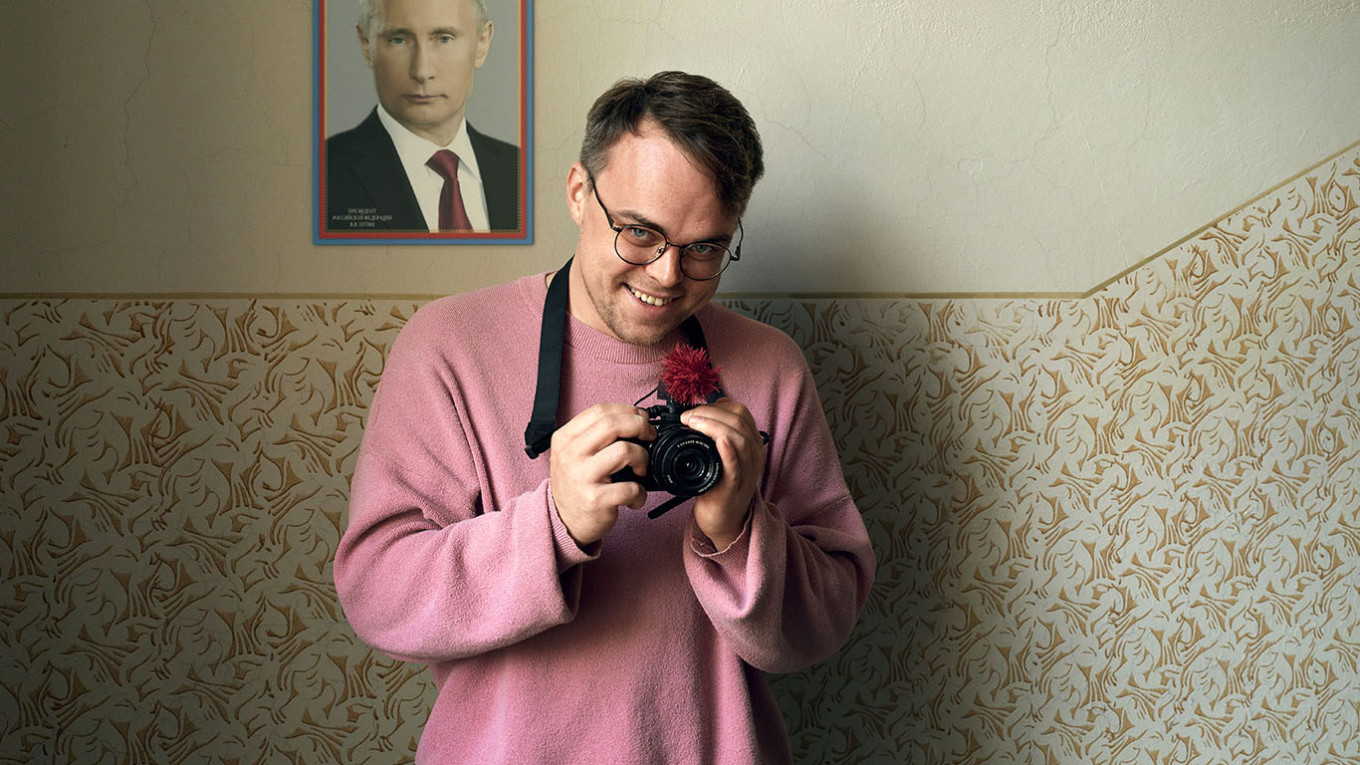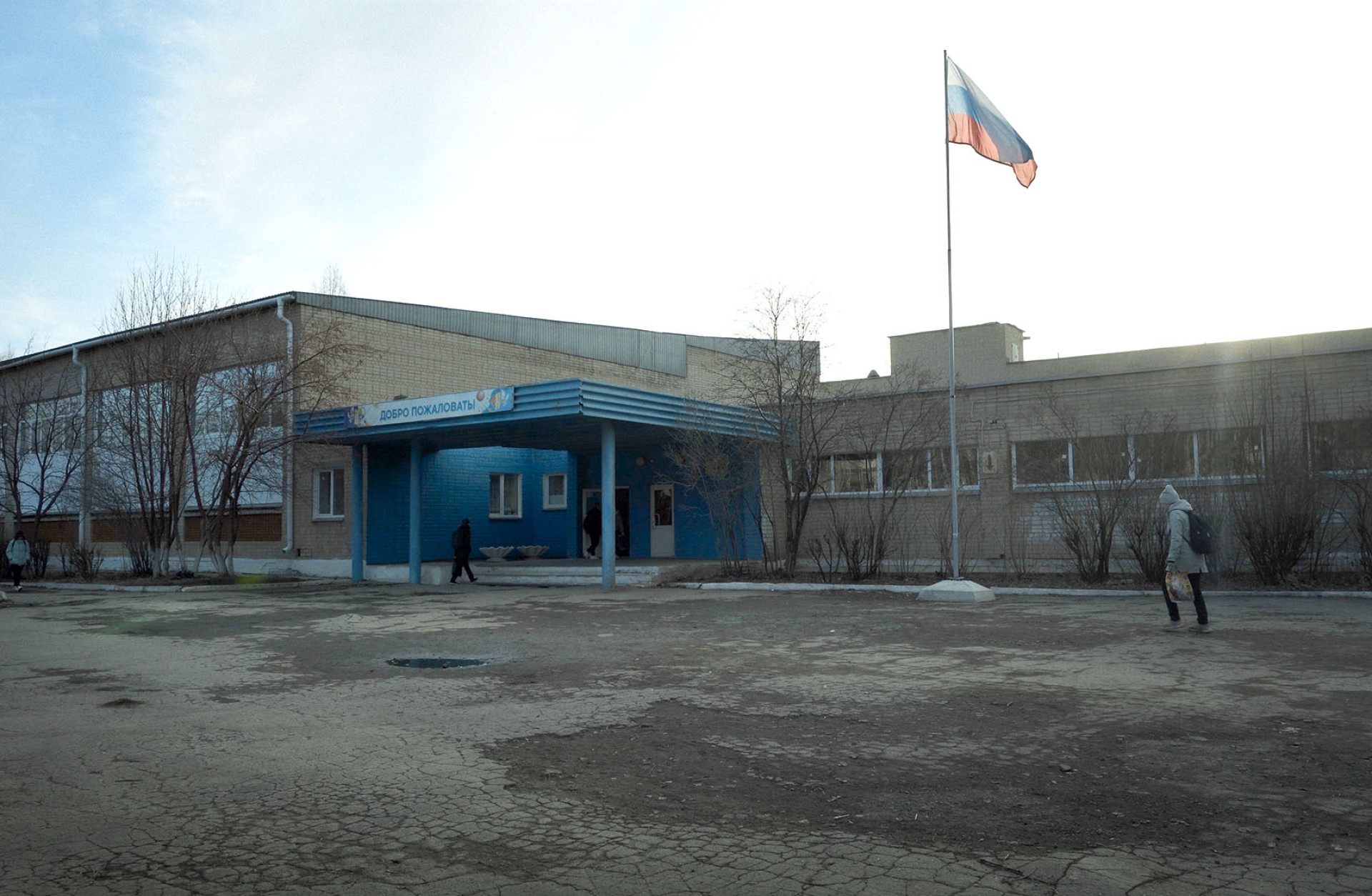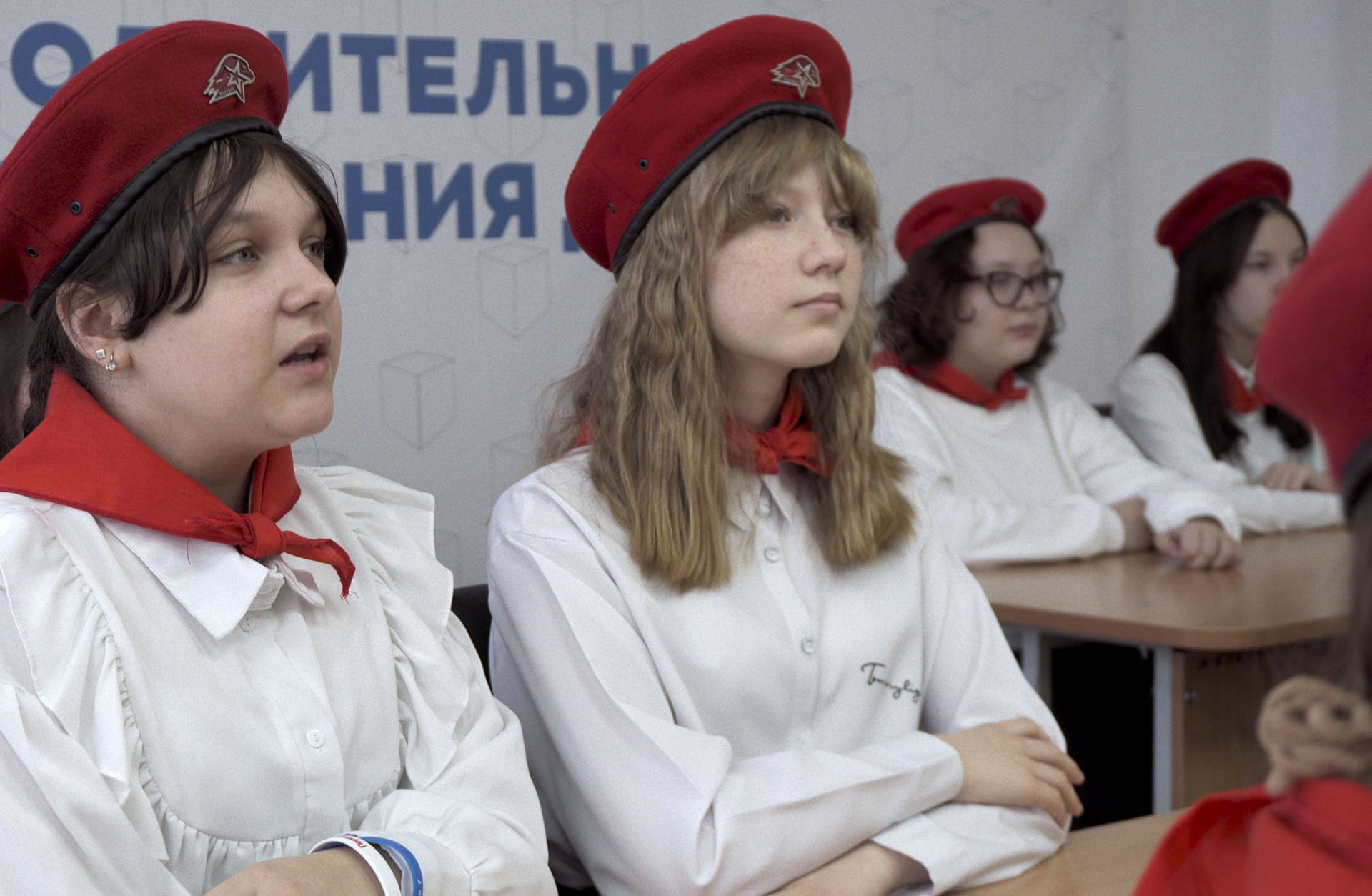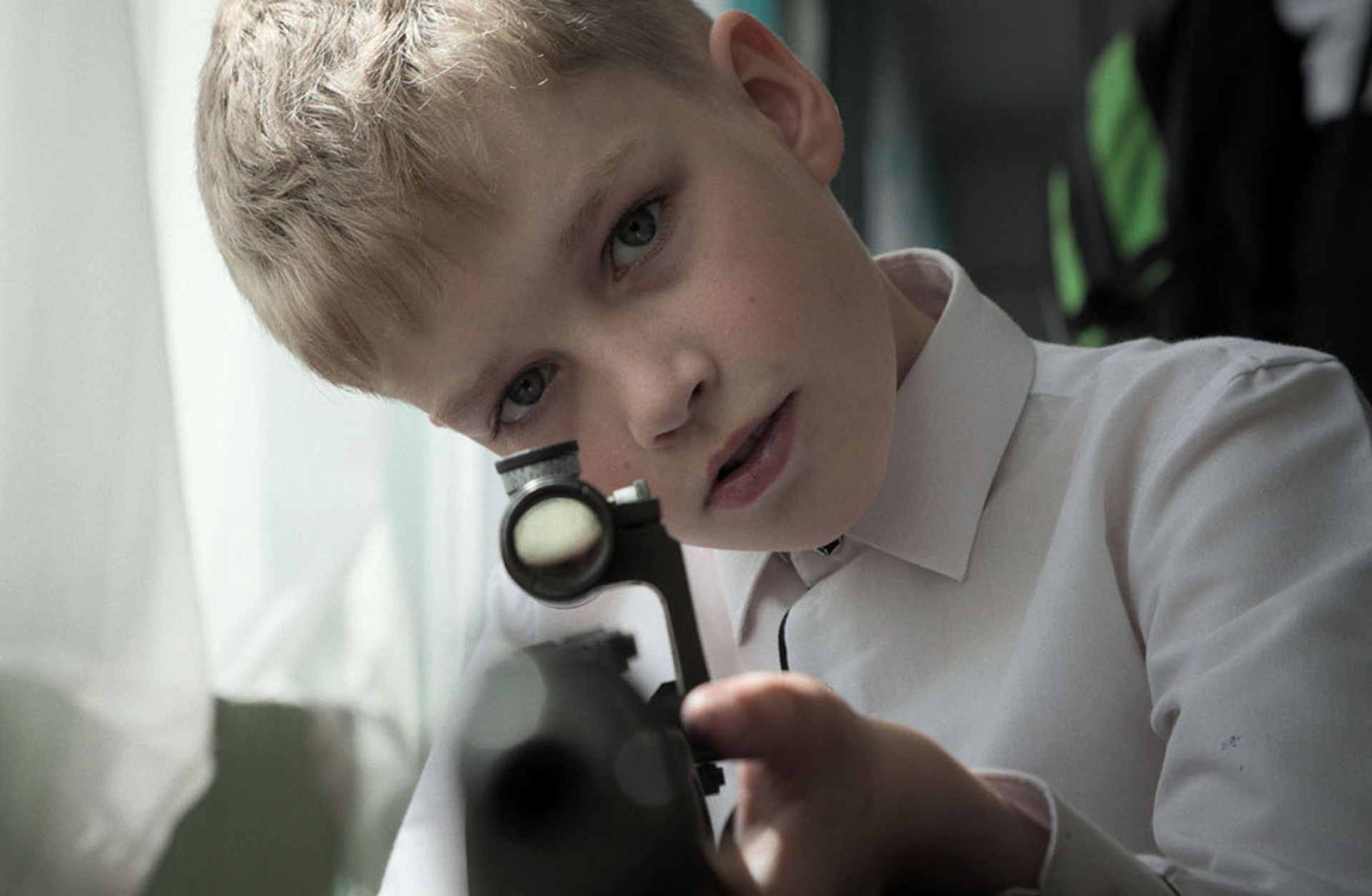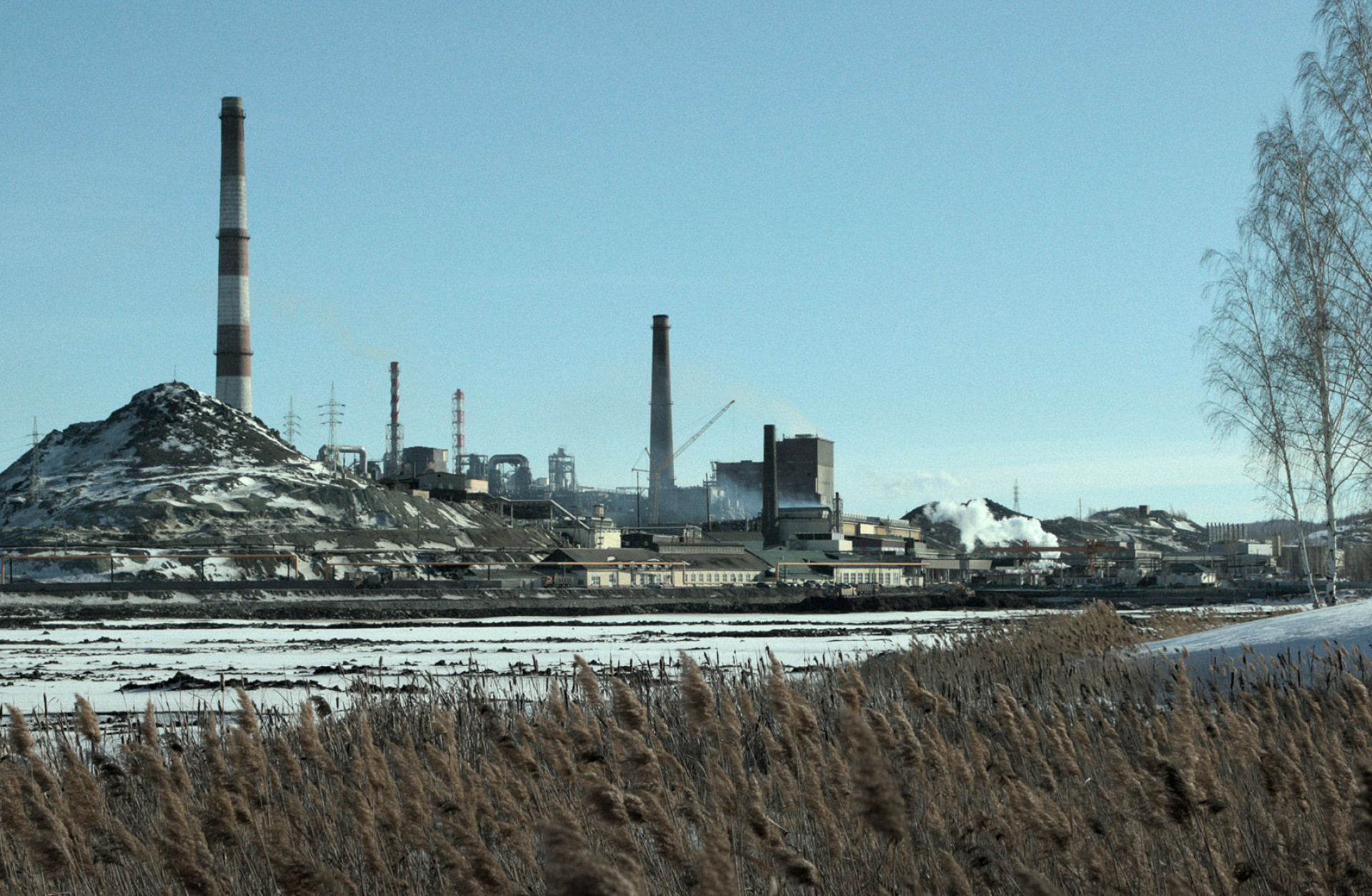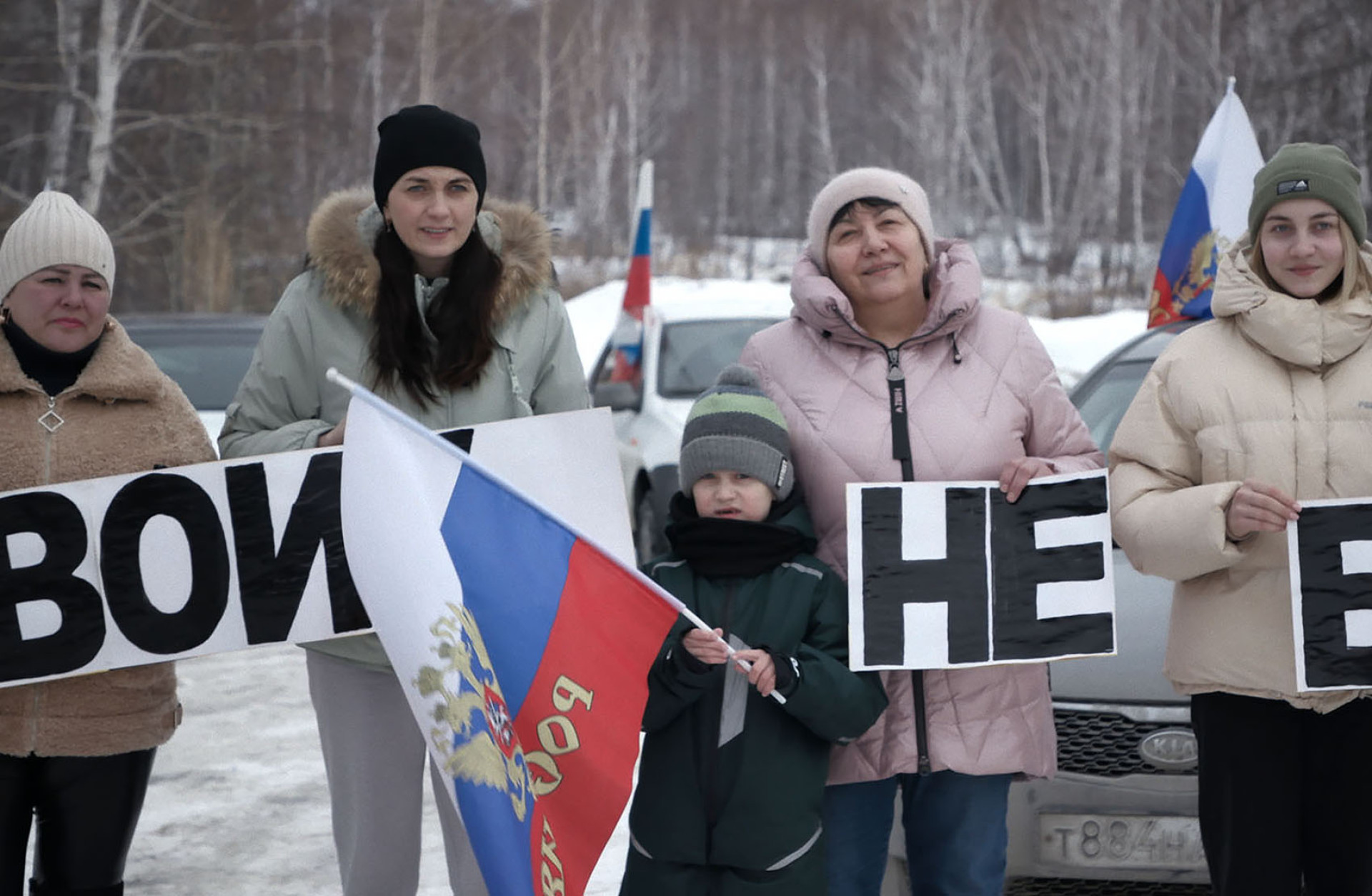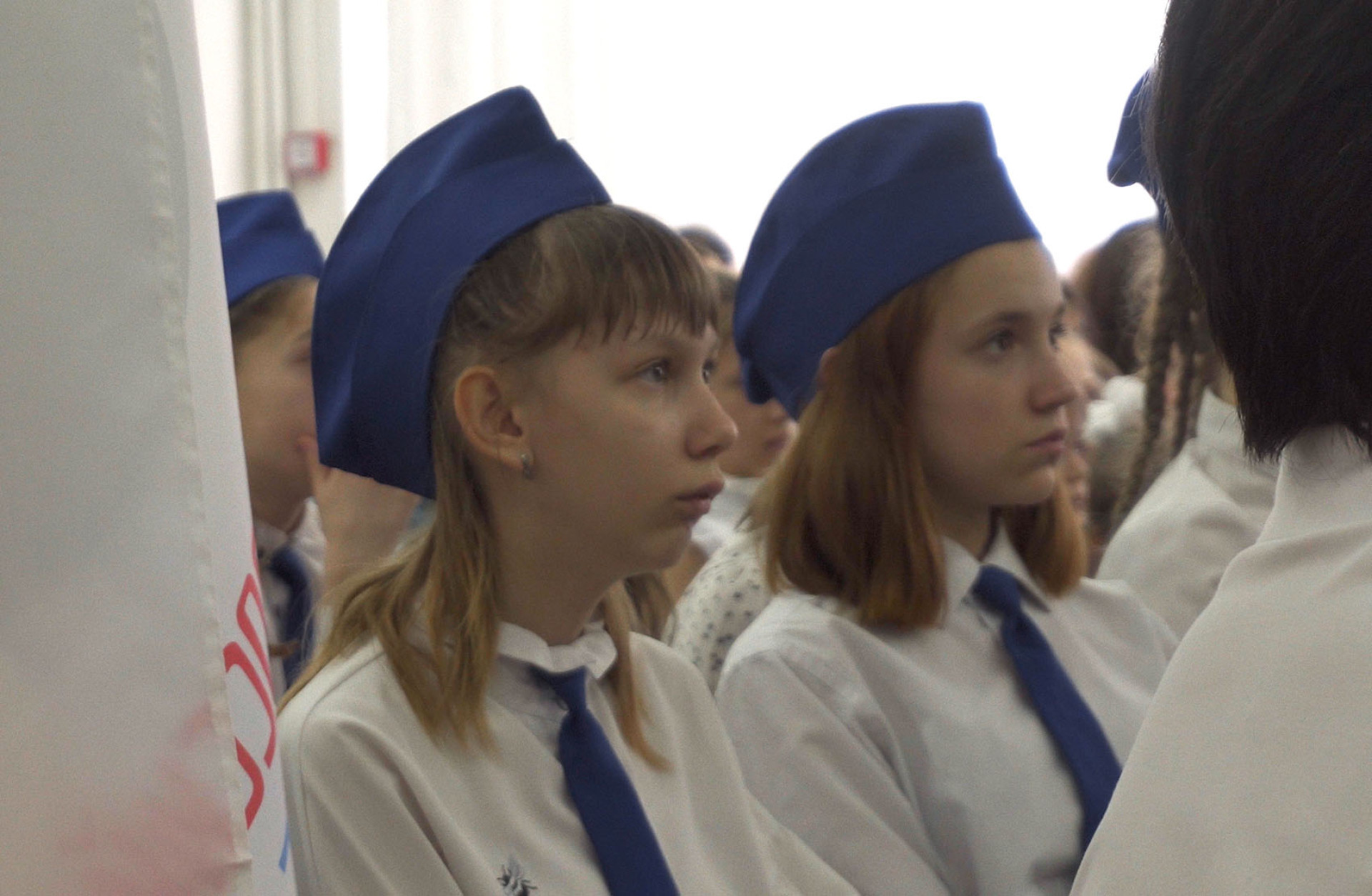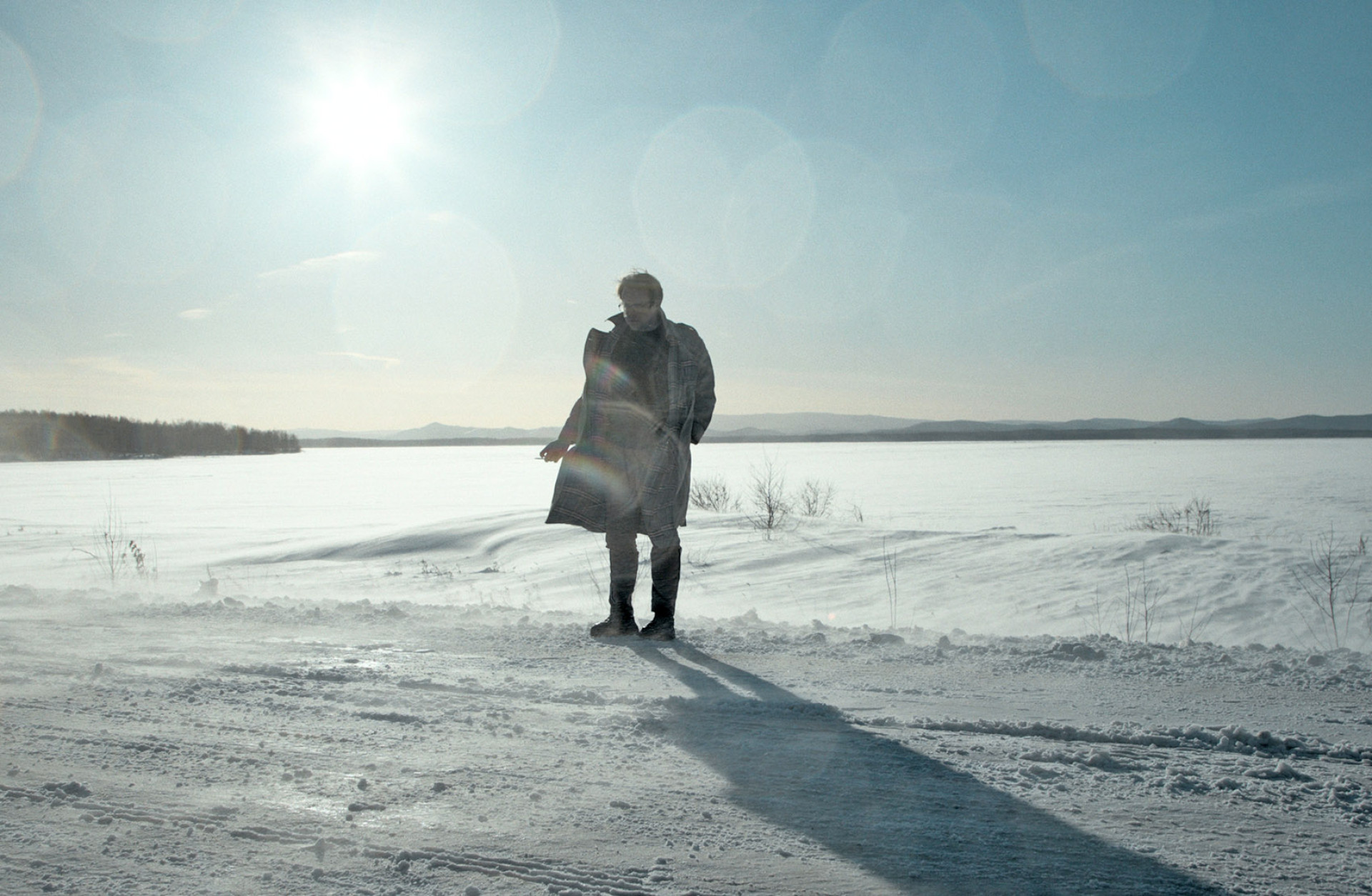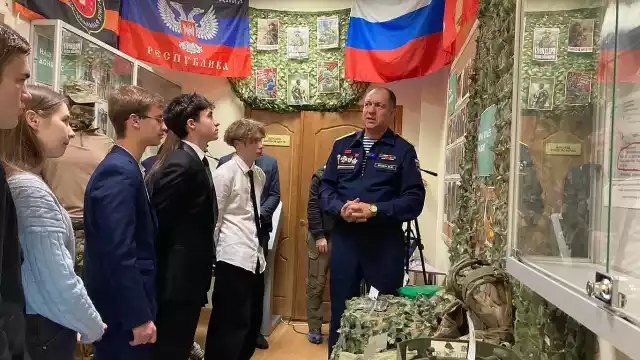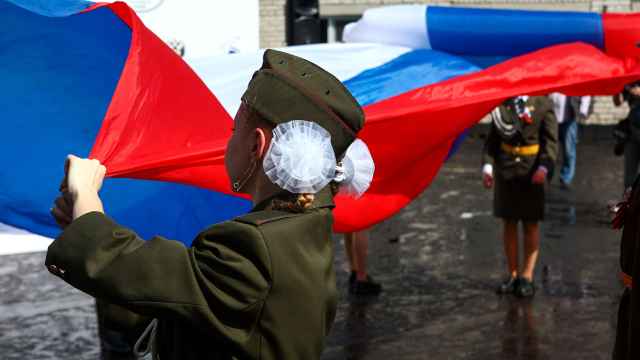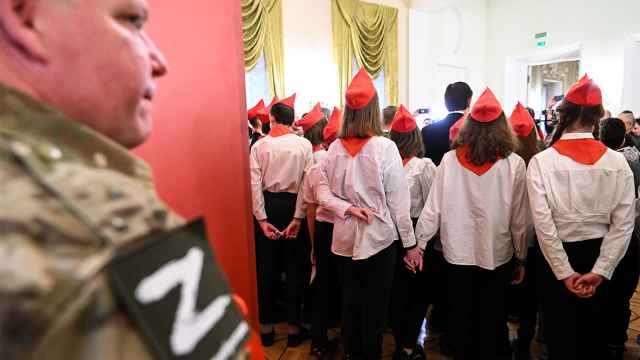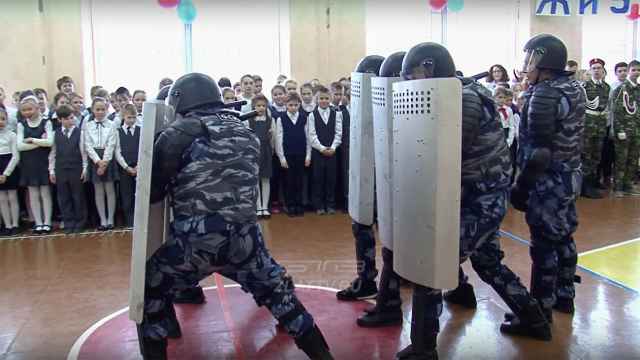Pavel Talankin witnessed Russia’s efforts to indoctrinate children with the state’s ideology while working as a school event coordinator in Karabash, a copper-smelting hub in Russia’s Chelyabinsk region notorious for its severe environmental pollution.
As part of his role, Talankin served as the school’s videographer and would film school events — which increasingly aimed to instill so-called “military-patriotic values” in students following Moscow’s full-scale invasion of Ukraine.
To protest the war, Talankin secretly kept months’ worth of footage and collaborated with Copenhagen-based filmmaker David Borenstein to create a documentary, titled “Mr. Nobody Against Putin.”
The result is a rare glimpse at how Russian schools have become tools of state propaganda, documenting the rise of militarized youth programs and the pressure on teachers to promote the Kremlin’s ideology.
Since Russia imposed harsh penalties for criticizing its military actions in Ukraine, Talankin had to leave his home country last year before releasing the documentary.
“Mr. Nobody Against Putin” premiered in January as part of the World Cinema Documentary Competition at the Sundance Film Festival and at the Göteborg Film Festival in Europe.
Talankin and Borenstein spoke with The Moscow Times about the making of the film and how propaganda is used to shape children's worldview.
This interview has been edited for length and clarity.
The Moscow Times: Pavel, what inspired you to turn your school recordings into a documentary?
Pavel Talankin: The idea to make a documentary film came to me after we started receiving directives [from the Education Ministry] about what we had to film [at school], what we had to publish and which poems and songs we had to use. In any case, I was obligated to film [as a school videographer]. I decided not to delete anything and to keep the footage so people could understand what schools were doing during the war. I reached out to many people and somehow I was connected with David. At first, I didn’t intend to tell this story to an international audience. What mattered to me was simply showing [what was going on in Russian schools] regardless of who would see it.
MT: David, when you started working on this project, do you think being a foreigner and observing from a distance helped you in making the film?
David Borenstein: I definitely think so. For me, I just trusted Pasha [Pavel] and what he wanted to say about his school in Russia. After all, it's his community and home and I think it was important for his perspective on those things to be at the center. But as a foreigner, I think what I brought to it was the ability to see Pasha's story, because it's often very hard to see your own story when you're working on a film.
I think my perspective helped universalize the story a little bit — to help Pasha tell a story that could be universally applicable to make people think about free speech and freedom in schools everywhere, not just in Russia. When I was at the Sundance festival just last week, I saw a lot of people make connections between what is happening in Russia and what is happening in the United States. I'm from Florida, where our schools are not as extreme in terms of indoctrination, propaganda and the free speech issue, but it's still happening.
And then maybe lastly, what I brought was a little bit of objectivity — as someone from the outside taking care to make sure that everything is accurate and double-checked.
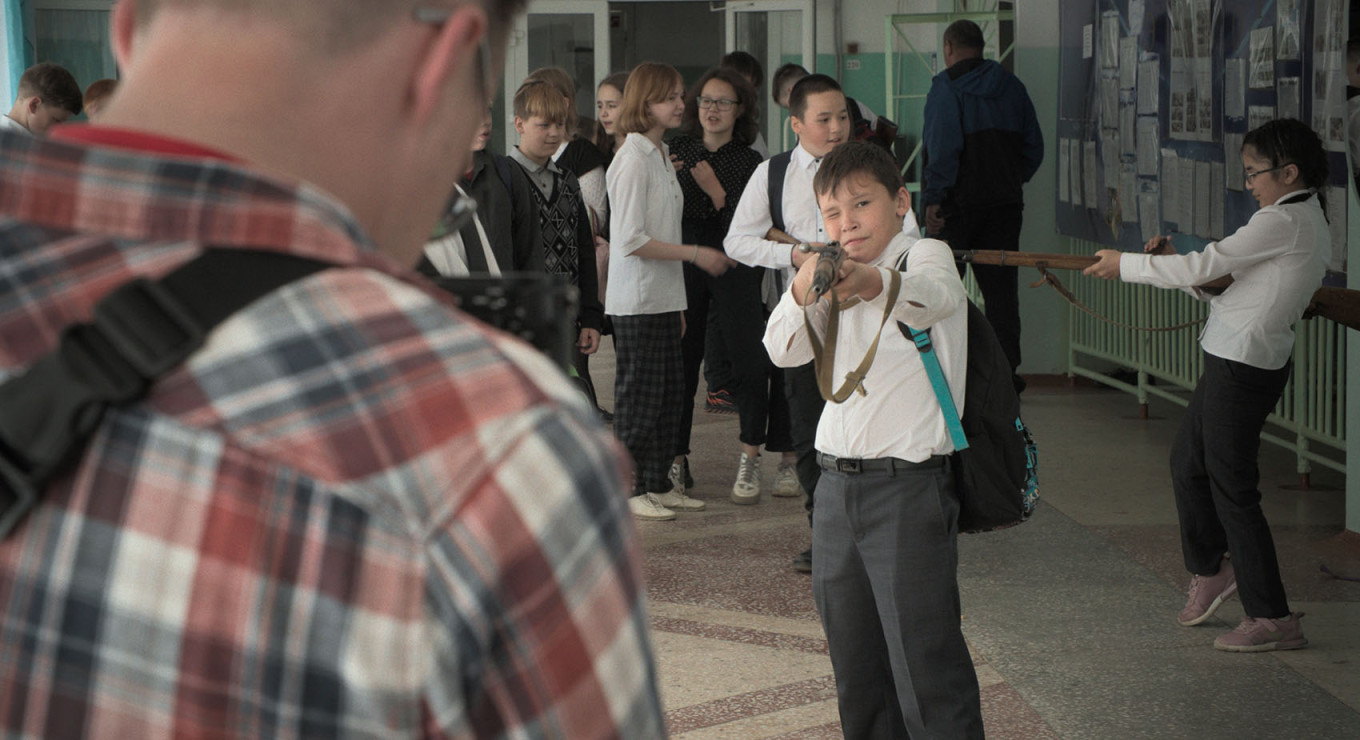
MT: Since you weren't in Russia during the filming, what challenges did that pose while editing the film?
DB: Of course there were difficulties. Prior to this, I worked in China for 10 years and I do speak Chinese. So, if you had told me before that I would work on a film in Russia, it would have sounded crazy. But chance brought me and Pasha together. I thought it would have been a little difficult for me to shop around because of security issues as well as [dealing with footage of] Russian-speaking people. But while there are negatives to not speaking Russian, I think there were also positives to having an outsider's perspective. What the film is saying comes pretty much directly and purely from Pasha, but as someone with experience making documentaries, I gave Pasha my feedback and ideas on visual language, how we can make a film from a first-person perspective, and most critically, how to put himself as a character in the story, which I don't think was a concept he had in the beginning. I think he had something to say about Russia and then I helped him put it into the package of a film.
MT: Can you tell us more about the security aspects?
DB: I came into this project with a lot of experience working in difficult institutions in China, and I made a lot of films before this in difficult-to-reach institutions, such as even some Chinese schools. But still, it was really difficult to wrap my head around this project. The very first thing on the more administrative production side of this project that I did was contact the BBC. By getting the BBC involved, we were able to work with people who had some feet on the ground in Russia and had access to the latest kind of information on what it meant to do journalism and film within Russia — so I was able to outsource some of the thinking on security to the BBC. There was a review at the BBC at the very end of the process — we watched the whole film and did take out a few lines here and there that may have compromised security for people. Also, one thing that we looked into in the beginning was the idea of reprisals — could this create a problem for anyone? So, there was a very comprehensive security review.
Of course, the biggest security problem was Pasha. He couldn't stay in the country if he were to make this film. There was a plan around helping him leave if he decided to do that. And that was all his decision. I was nervous all the time — even more nervous than Pasha. On our side, we were constantly worrying for him because we don't know the situation as much as he does. When you're in the dark about what's happening, you tend to imagine all these kinds of nightmare situations. There were many nights where I was up thinking about him and hoping he was okay and just feeling so powerless because of all the distance between us. So it was a very intense project.
MT: Pavel, you are the only one in the film who openly criticizes the regime, as other comments were cut for safety reasons. But how much has propaganda actually influenced children over time?
PT: The situation varies from place to place and teachers as well as students react differently. Some passionately support it, saying, “This is great, it [promoting traditional values] is the right thing to do, finally!” Others hesitate; some are even afraid. For example, before one of these events, a teacher came up to me and said, “You know, we’ve lived through different times — the '90s were tough, but at least there was hope back then. Now, we don’t even have that.” Such a powerful statement, but it didn’t make it into the film.
Propaganda affects children in different ways. If their families talk about the war and support it, then the teachers’ words only reinforce their beliefs. But if their families avoid the topic, a child who starts questioning things is still influenced by propaganda.
Teenagers resist it the most — they have their own lives, friendships, relationships, skipping class, hanging out, training sessions. But younger kids are the most vulnerable to it. That’s a basic principle in pedagogy — small children tend to see their teacher’s words as absolute truth.
MT: From an ethical standpoint, did you have any concerns about filming children?
PT: I was filming for the [Education] Ministry and the footage was posted on social media — it was my job to film the children for the ministry. So the footage for the film is more or less the same as the footage I gave the ministry. It was not about moral concerns. Plus, I was with a huge camera, three times bigger than my head. The idea of some kind of hidden camera doesn’t make sense to me. When children come to school, parents sign consent forms for the processing of personal data for the entire year. Technically, we should get written consent before each event, before every filming. But schools don’t have enough resources for that. On social media, you’ll find plenty of [footage of] children [posted by the ministry]. Did anyone get consent? No. Did the ministry report to the parents? No.
DB: It was hard for me to make the call myself because on one hand, there's obviously a very imperative editorial reason to show this material. On the other hand, I’m a parent myself, I have kids in school, and it's very difficult to think about this kind of decision. This in particular is something that I outsourced to the BBC. But obviously, there have to be decisions to be made to show imperative stories that happen in places like schools.
MT: What was the most challenging part of making the documentary?
DB: Communication was really difficult. Once I met Pasha in person everything was so easy — we knew we were on the same page and we wanted to make the same film. But before, both sides were not even sure we were both making a film. I didn’t know how loose-lipped or tight-lipped he was. Was he going to talk about this to everybody around him? Of course, now I know that he wouldn't do that, but I had no idea who he was. I was not sure if he actually was ready to leave Russia, because it’s a crazy thing to do and it was so brave of him. On the other hand, he also didn't know if we were a real company and I was a real director. It shows Pasha's determination to make the project — that even with so much uncertainty, he still made it. Plus, we could only speak through an encrypted line.
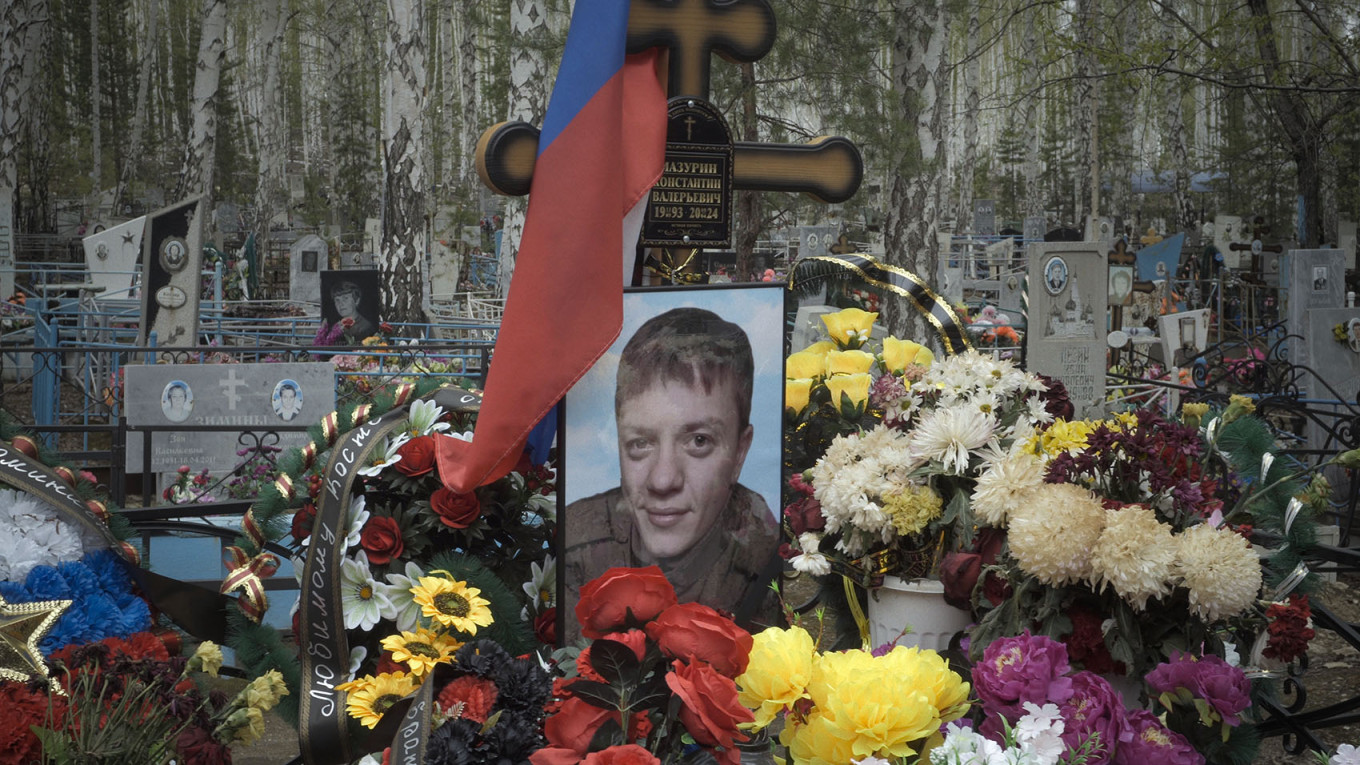
It was a miracle that we got it to the point where, when we met in person for the first time, I was able to show him a rough cut of the film. Up until the point of really having a pretty mature rough cut of the film, I was 50% sure that the film wasn't going to happen. And so was Pasha. That's the first thing he said when he watched the rough cut — that he was 50% sure this whole thing was a scam. The fact that we've made it is something of a small miracle of the film.
PT: It wasn’t easy leaving home and it wasn’t easy saying goodbye to my family. No one knew what I was doing and it was scary because if they had found out that I was working with a foreign organization making a film about school propaganda and how it affects children, it could have been dangerous. My family didn’t know, no one knew.
Crossing [border and security checks] at the airport was also terrifying.
I don’t regret it, though. If I had to do it all over again, I would.
A Message from The Moscow Times:
Dear readers,
We are facing unprecedented challenges. Russia's Prosecutor General's Office has designated The Moscow Times as an "undesirable" organization, criminalizing our work and putting our staff at risk of prosecution. This follows our earlier unjust labeling as a "foreign agent."
These actions are direct attempts to silence independent journalism in Russia. The authorities claim our work "discredits the decisions of the Russian leadership." We see things differently: we strive to provide accurate, unbiased reporting on Russia.
We, the journalists of The Moscow Times, refuse to be silenced. But to continue our work, we need your help.
Your support, no matter how small, makes a world of difference. If you can, please support us monthly starting from just $2. It's quick to set up, and every contribution makes a significant impact.
By supporting The Moscow Times, you're defending open, independent journalism in the face of repression. Thank you for standing with us.
Remind me later.



